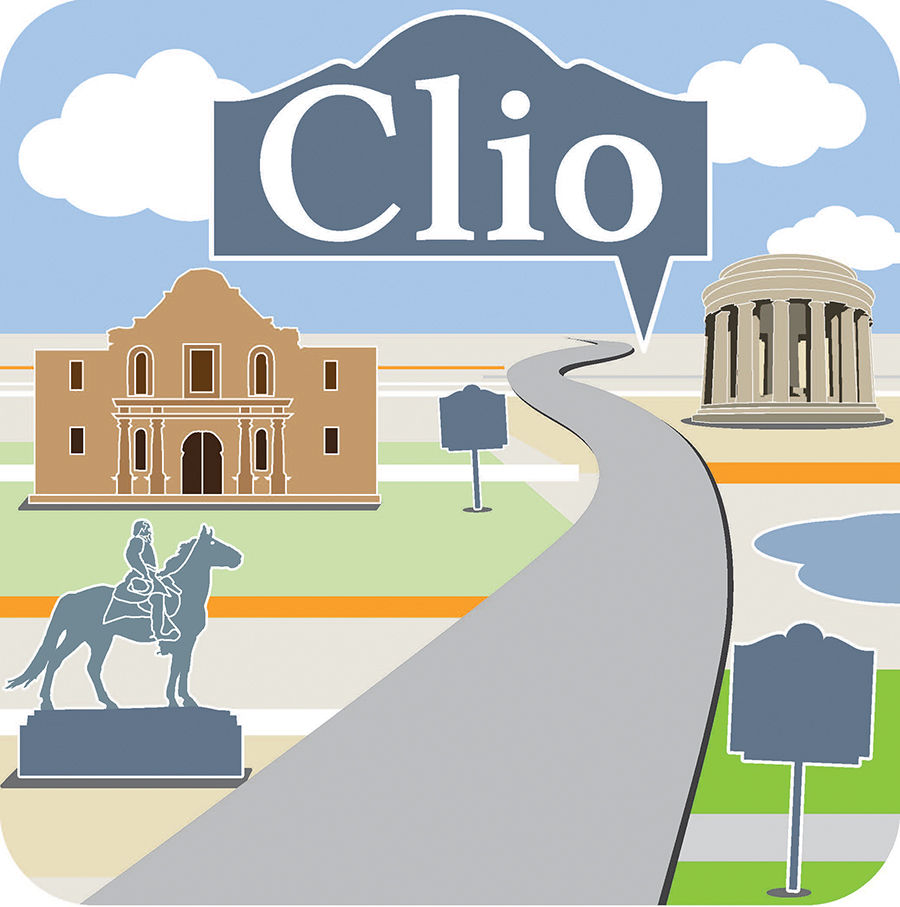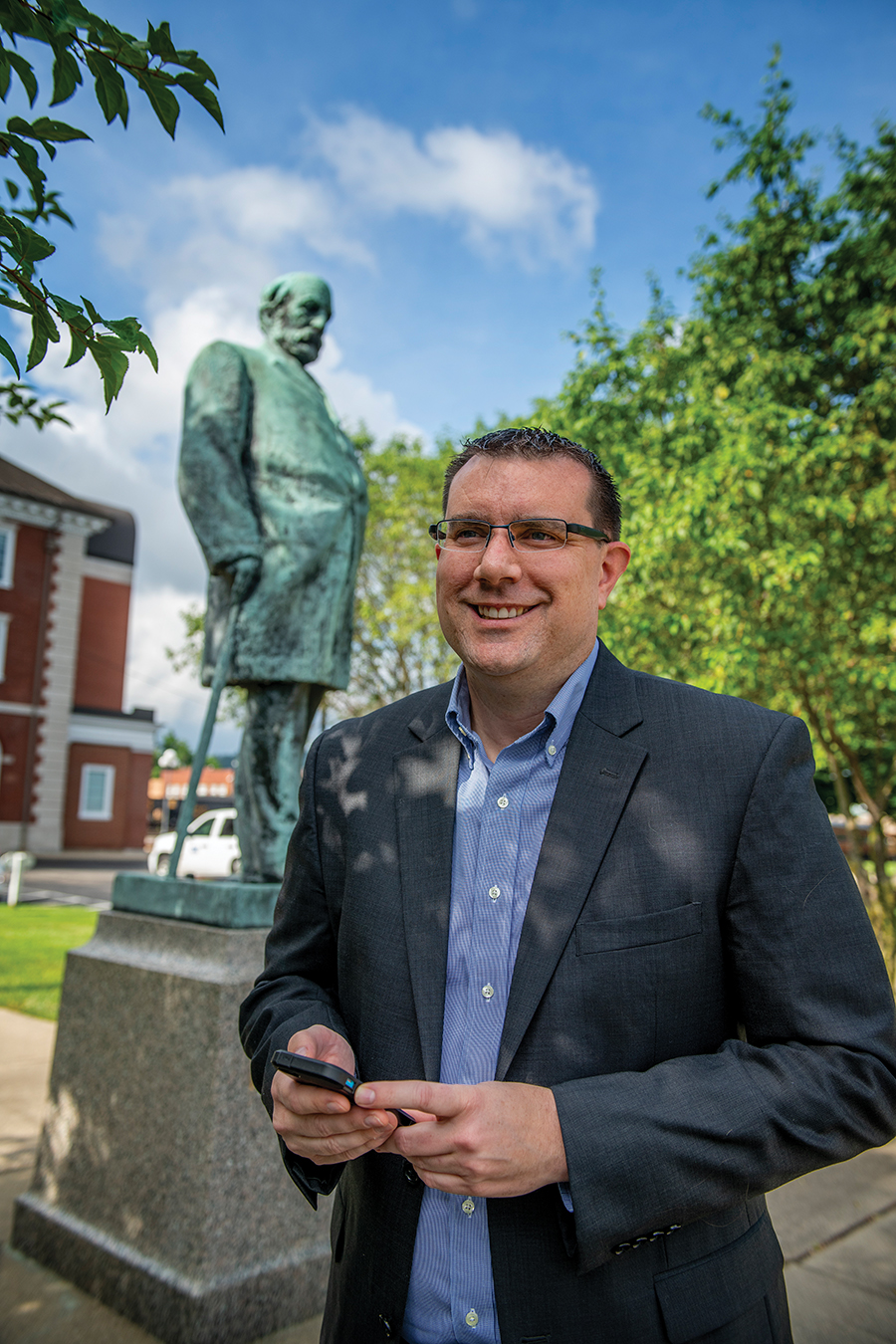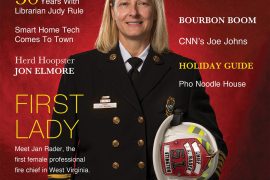Marshall professor David Trowbridge has invented an amazing app for tourists and history buffs that has garnered national attention.
By Jean Hardiman
HQ 102 | SUMMER 2018
We’ve all been there. We’ve stood before a striking historic landmark. We’ve marveled for a moment, felt our imaginations churn and wished we knew more of the history.
Thankfully, David Trowbridge of Marshall University came up with a way to make that history easy to find. Trowbridge, an associate professor of history at Marshall, founded Clio in 2013, putting realms of historical information in everyone’s hands, or more specifically, on their cellphones.
Found online at www.theclio.com, Clio is named for the muse of history in Greek mythology and it features GPS-guided information on historical and cultural sites across the United States. As of June, it had over 29,000 entries, 5,000 to 7,000 daily users and some 7 million page views. The tech work is handled by Strictly Business Computer Systems in Huntington.
The app is free. A believer that history should be accessible to all and not influenced by dollars, Trowbridge built Clio through grants and by giving everyone — such as students or history lovers everywhere — the chance to create the entries themselves, though each is screened by trusted experts and editors.
Entries include a summary of a location’s historical significance, links to further information, photos and in some cases, digital walking tours, 360-degree imagery and Google street mapping options.
But Trowbridge wants to add more.

“History and culture surround us, and that’s what impels us to travel,” he said. “It’s why we get in the car. You can learn about Gettysburg many ways more efficiently than going there. But you’re there for the feel. The future of Clio is trying to replicate that as much as you can through technology.”
He wants to add technology that embeds audio files along a route so audio will start playing when someone is walking. For example, a tour of Heritage Farm Museum & Village would feature the voice of Audy Perry, “Because who else could it be?” Trowbridge said. “It’s the family’s story, and that’s what makes that place special.”
Trowbridge, who earned his doctorate from the University of Kansas in 2008 and served in the National Guard for 12 years, also wants to develop mapping that is more user-friendly for smaller complexes such as college campuses and cemeteries.
He’s hoping a grant from the National Endowment for the Humanities, awarded to Marshall last year to enhance the app, will help. The NEH awarded $60,000, pending a $60,000 match raised through Marshall, to be granted in $20,000 installments over three years. Should Marshall earn the funds to receive the grant, it will provide stipends for students to create new entries and features.
Trowbridge’s work at Marshall also has earned a Whiting Public Engagement Fellowship, a $35,000 grant from the Knight Foundation and a spotlight as a tech innovator in PCMag, putting Marshall in the same company as institutions such as Stanford, UCLA, the University of Virginia and Boston College. Local newspapers and publications such as the Boston Globe and Amtrak’s magazine, The National, have covered Clio, along with several of the nation’s major history organizations — American Historical Association, Organization of American Historians, National Council on Public History and the American Association for State and Local History.
Most recently, Clio was selected, out of 1,400 other options, to be featured by the National Humanities Alliance after completing the Mellon Foundation funded project Humanities for All. The project focuses on higher education based humanities initiatives meaningfully impacting the public, focused on one or more of the following categories: outreach, engaged research, engaged teaching, engaged public programming and the infrastructure of engagement.
Trowbridge sees attention as a chance to emphasize that Clio started at Marshall and to share local history.
“We’re sharing West Virginia history, and we’re sharing it in a powerful way,” he said.
He’s also excited about Clio’s value as an educational resource.
“One professor said, ‘This forces me to teach the way I’ve always known I’m supposed to,’” Trowbridge said. “You are a mentor, and there is a trust that develops between teacher and student because both of your names are on there. You are both accountable.”
Over the past two years, students who have worked on Clio as part of an independent study project have gone on to exciting endeavors. One has a Fulbright Scholarship to study creative writing in Ireland, one is working at the Smithsonian, one is working at a nonprofit in Washington and one is working for the Ohio History Connection.
“I don’t know any who have done the work and not gone out and been successful according to their definition of the word,” Trowbridge said.
Anyone who would like to support Clio’s development, earning Clio matching dollars through the NEH grant, can make tax-deductible donations on the Clio website or through the Marshall University Foundation.
“And we’ll employ students to go out and share West Virginia history in ways that educators are using, that should spur economic development and pride in our state,” Trowbridge said.





